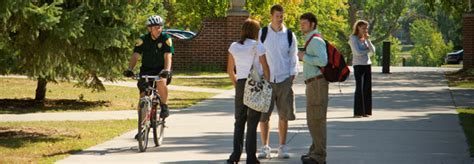The Return of In Loco Parentis?
In loco parentis (Latin for “in the place of a parent”) is a phrase that refers to the legal responsibility of an individual or organization to assume some of the functions and responsibilities of the parent. In higher education, this doctrine was very much alive and well, and manifested itself in many restrictions on students (e.g. movement, speech, etc.), up until the 1960s. Judicial recognition of student freedoms and rights thereafter led to the swift eradication of such theory from college campuses across the country. A California Supreme Court decision issued earlier this month, however, may pave the way for a return of some form or aspects of in loco parentis.
In The Regents of the University of California et al. v. The Superior Court of Los Angeles County/Katherine Rosen, California’s highest court unanimously agreed to overturn an appeals court ruling that dismissed the 2010 case of a former UCLA student, claiming negligence on the part of the university for failing to prevent the attack she suffered at the hands of another student in a chemistry lab. Finding that students depend on their respective institutions for a safe environment, the Court pointed out that public colleges and universities in the state “have a special relationship with their students and a duty to protect them from foreseeable violence”. The decision essentially puts California schools on notice that they may face liability if they have knowledge of a student’s dangerous propensities and fail to take action to control him/her and/or inform and protect others.
In this case, UCLA officials knew that the assailant suffered from paranoid delusions and had threatened violence against others. Moreover, the university had taken a number of steps in response thereto, including monitoring the individual, requiring him to attend counseling and barring him from campus housing. The California Supreme Court’s ruling thus has the effect of sending the case back to the lower courts to determine whether the above and related actions by the university were “reasonable” enough under the circumstances so as to satisfy the newfound duty to safeguard student well-being in settings where it exercises control over the environment and/or student behavior.
It is worth noting that the decision has its limitations. For one thing, it does not extend university liability for violence committed on campus by a stranger unknown to college officials or for alcohol-related deaths at off-campus student parties. It is, furthermore, restricted to “curricular activities”, which many understand to mean classroom settings, as in the case of the chemistry lab at issue here. The opinion was issued in the state of California – widely considered one of the most liberal jurisdictions in the country – and is applicable only to public colleges and universities located therein.
Still, many industry observers believe that the ruling poses a slippery-slope of sorts, which could usher the return of in loco parentis, and otherwise have significant repercussions across the higher education landscape. The true scope of the term “curricular activities”, and the control that is now required to be exercised in connection therewith, is not entirely clear and arguably could extend beyond academic buildings to include study abroad programs, athletic facilities and even internship sites. To avoid even the prospect of exposure, institutions of higher education might cease offering some of those activities, as well as mental health and related services altogether. Even if those services are offered, students might be less willing to be honest and transparent with psychiatrists and psychologists, thereby undermining both their own well-being and that of the student body in general.
The court, in its opinion, acknowledged those concerns as well as fears that colleges might become less likely to admit students with mental illnesses and more inclined to suspend or expel them without justification, but, citing laws barring discrimination against the disabled, discounted their likelihood. In any event, we encourage our clients, and other colleges and universities – whether in California or not – to be mindful of this decision and take proper steps in response thereto. At a minimum, schools will want to assess their current processes and protocols for addressing safety issues relating to students, consistent with prevailing disability discrimination laws, and FERPA, HIPPA and other privacy laws. HMBR stands ready to assist in this effort and to address any other concerns or questions arising out of this decision.

